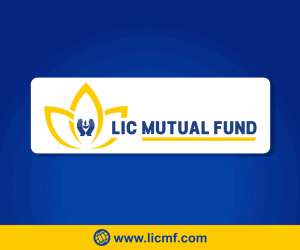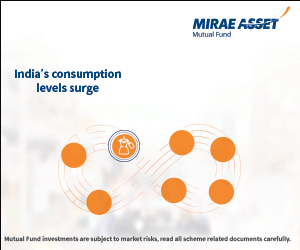Protect your family with health insurance

Healthcare costs in India are increasing at a distressing rate. Based on some estimates the annual healthcare inflation is in the range of 15 – 25%. A hospitalization for a serious illness can cost Rs 5 lakhs or above. In the absence of health insurance, a serious illness in your family can cause financial distress or leave big hole in your hard earned savings, at a time when you least expect it.
Why health insurance?
Let us take a look at the economics. Let us assume, you are 30 years old and your monthly savings is Rs 25,000, after paying for all the monthly expenses and loan obligations (car loan EMI, home loan EMI etc.). If you incur a medical expense of Rs 5 lakhs due to an unfortunate serious illness in your family, even if you have enough liquid savings to cover that expense, it will take you almost two years to build back the savings, assuming no major unforeseen expenses in the interim. Now let us discuss opportunity costs.
- What is the opportunity cost of not getting medical insurance policy? If you were not covered by health insurance, you would have had to pay Rs 5 lakhs from your own savings. On the other hand if you had an insurance policy with a sum assured of Rs 5 lakhs, you would not have to pay from savings. Your Rs 5 lakhs savings could grow to Rs 1.5 to 3 crores by the time your retirement (assuming a retirement age of 60 years), at a compounded annual return of 12 to 15%. So in effect, in this example, if you do not have a health insurance policy, you give up Rs 1.5 – 3 crores at retirement.
- What is the opportunity cost of getting a medical insurance policy? You would have to pay an annual premium of around Rs 5,500 in a Mediclaim policy for a sum assured of Rs 5 lakhs. If you did not have an insurance policy you could have saved the premium. By the time of your retirement, Rs 5500 invested every year in assets yielding a compounded return of 12 to 15%, would have grown to Rs 13 to 24 lakhs. So in effect, in this example, if you have a health insurance policy, you give up Rs 13 – 24 lakhs at retirement.
Compare the opportunity cost of not getting a medical insurance policy (Rs 1.5 to 3 crores) with the opportunity cost of getting a medical insurance policy (Rs 13 – 24 lakhs). It is a no brainer, why health or medical insurance makes great financial sense for the policy holder. Health insurance is essential to protecting your family’s health and wealth in the long term. It enables you to provide your family with high quality medical treatment, when the need arises, without having to worry about the financial implications
Health insurance, which is also commonly known as Mediclaim in India, provides insurance cover for comprehensive hospitalization expenses related to accident and illness. It typically covers the following expenses:-
- Room, boarding expenses of the hospital bed
- Fees charged by physician, surgeon, anesthetist and other specialists
- Expenses for the general tests and procedures like X Ray, ECG, MRI, anesthesia etc
Key benefits of health insurance
- Protection against high cost of healthcare expenses in the case of serious illness requiring hospitalization in a good hospital. The example above clearly shows the financial benefit of getting health insurance
- Insurance companies offer plans for critical illnesses with the exception of a few, e.g. HIV etc.
- Insurance companies offer cashless facility, in which the insurers directly settle bills with hospitals in their network, thereby ensuring lowest out of pocket expenses for the family of the patient
- Health insurance premium of up to Rs 15000 (Rs 20000 for senior citizen), is eligible for deduction from gross taxable income under Section 80D of the Income Tax Act 1961. An additional deduction of Rs 15000 is allowed for premiums paid on behalf of parents. We will discuss the tax treatment of health insurance in more details, later in the article.
Key considerations in buying health insurance
- Check if your employer has a group health insurance policy. If it does not offer health insurance to employees, you should buy a health insurance or Mediclaim policy yourself. It your employer offers health insurance, you should find out if your spouse, children, parents and other dependents are covered. Check what is the total amount and nature of illnesses that your company’s group insurance covers. If your company’s group insurance is not adequate for your needs, then you should buy additional health insurance to protect your family’s healthcare needs
- Make sure your entire family is covered in your health insurance policy. Generally, if you have a family it makes more sense to buy a family floater plan. In this type of plans, the entire family is covered for the amount they share and the benefit is that, per person premium is lower compared to the scenario if they would have taken individual plans.
- Choose the right amount of cover or sum assured. Sum assured is the maximum amount of cover for medical expenses in one policy year. Your premium is directly linked to the amount of cover or sum assured. You should be pragmatic in determining how much cover you need. You can save on premiums by choosing a lower sum assured, but you may be exposed to financial risks if the cost of medical treatment in the event of a serious illness in the family, is more than the sum assured. As a thumb rule, the cost of bed per night is usually 1% of the sum assured. You can find out how much is the cost of bed per night in a hospital of your choice and estimate how much sum assured you need. This is just directional, you should ensure that the sum assured is adequate to cover your needs in a medical emergency
- Make sure the empanelled hospitals in your Mediclaim policy, are the ones that you will be comfortable with, both from a quality and convenience perspective. Insurance companies have tie ups with empanelled hospitals to settle the claims of patient, including cashless facilities. You should do your own due diligence on the empanelled hospitals, with regards to their reputation, specialties, equipment and facilities, doctors on payroll, distance from your home, etc.
- Check your family’s medical history and make sure that your health insurance policy covers the illnesses in your family’s medical history. Some diseases are hereditary and therefore it is prudent to ensure that they are covered in your policy
- Read the different clauses and features of the health insurance policy carefully before buying the policy. For example, check if your insurance policy has no claim bonus, which is bonus or discount on next year premium if you have not claimed any insurance during the policy year. This is a good feature to minimize costs and also an incentive to keep you fit and healthy. You should also read renewability clauses of the policies. Choosing a policy that will cover you for the longest period is more effective. Read clauses regarding pre-existing medical conditions and exclusions. These are just a few examples.
- Compare health insurance policies offered by different insurance companies, and make sure that you select the best option
Tax treatment
Medical insurance premium for self, spouse, dependent children and parents are eligible for deduction under Section 80D. The maximum allowable deduction is Rs 15,000 for self, spouse and dependent children. The applicable deduction for senior citizens is Rs 20,000. If an individual pays for medical insurance of parents who are senior citizens, then he or she can claim an "additional" maximum deduction of Rs 20,000. However, if the parents are not senior citizens, then a maximum of Rs 15,000 can be claimed as additional deduction. Therefore the total amount of the deduction the individual claim for medical insurance for self, spouse, dependent children and senior citizen parents is Rs 30,000 if the parents are not senior citizens and Rs 35,000 if the parents are senior citizens.
Conclusion
With the rising cost of healthcare in our country, health insurance is an essential investment in ensuring our family’s critical healthcare needs. In subsequent articles in this series on health insurance, we will discuss different types of health insurance schemes available in the market and several other aspects related to health insurance. You should educate yourself about health insurance, whether it is offered by your employer or you buy it yourself. If you have a good health insurance that meets a wide variety of medical needs, you will be free from health related financial concerns and focus on other important financial goals.
Queries
-
What is the benefit of mutual fund STP
Aug 29, 2019
-
How much to invest to meet target amount of Rs 2 Crores
Aug 26, 2019
-
Can I achieve my financial goals with my current mutual fund investments
Aug 24, 2019
-
Can you tell me return of various indices
Aug 19, 2019
-
What would be the post tax return on different investments
Aug 18, 2019
-
Which Principal Mutual Fund scheme will be suitable for my retirement corpus
Aug 16, 2019
-
What is the minimum holding period for availing NCD interest
Aug 4, 2019
Top Performing Mutual Funds
Recommended Reading
Fund News
-
Edelweiss Mutual Fund launches Edelweiss BSE Internet Economy Index Fund
Apr 25, 2025 by Advisorkhoj Team
-
Bajaj Finserv Mutual Fund launches Bajaj Finserv Nifty 50 Index Fund
Apr 25, 2025 by Advisorkhoj Team
-
SBI Mutual Fund launches SBI Income Plus Arbitrage Active FOF
Apr 23, 2025 by Advisorkhoj Team
-
Motilal Oswal Mutual Fund launches Motilal Oswal Infrastructure Fund
Apr 23, 2025 by Advisorkhoj Team
-
Groww Mutual Fund launches Groww Gilt Fund
Apr 23, 2025 by Advisorkhoj Team













